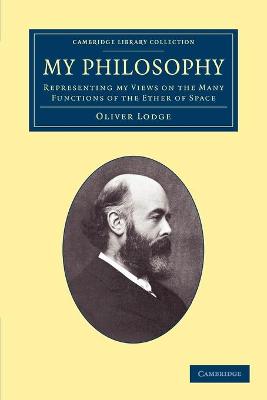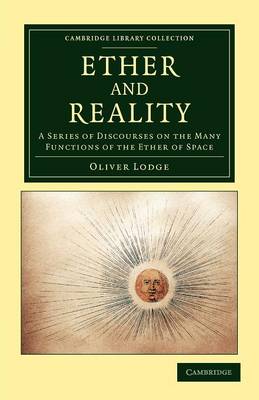Cambridge Library Collection - Physical Sciences
2 total works
In his study of optics, Newton postulated that light, like sound, must be carried through a medium, and that this medium must exist even in a vacuum. By the late nineteenth century, this theoretical substance was known as the luminiferous ether. But the ether theory faced several problems. If the earth moved through ether, there would be ether wind, and light travelling against the flow would move more slowly than light travelling with it. That was soon disproven. Nor could the ether be stationary: by 1905, Einstein's work on relativity had disproven absolute motion. In this fascinating advocacy of ether, first published in 1933, Sir Oliver Lodge (1851–1940) fiercely defends ether against the new physics, arguing for solid models over mathematical abstractions, and urging new ether experiments. With in-depth references to Einstein, Jeans and Eddington, this book is still relevant to students in the history of science.
Among the widely agreed facts of physics in the late nineteenth century was the existence of luminiferous ether: the medium through which light was thought to travel. Theorised to be a highly rarefied substance, the ether accounted for the movement of light, gravity and even heat across a vacuum. It also had great implications for spiritualism. Where thought was not proven to be a result of chemistry in the brain, the presence of ether allowed for the idea that cognition and emotion might exist independently of a physical body. First published in 1925, this monograph by the eminent physicist and ether advocate Sir Oliver Lodge (1851–1940) was written for the non-scientific reader. With a focus on straightforward explanations rather than mathematical theory, his book still represents a fascinating introduction to the topic today.

